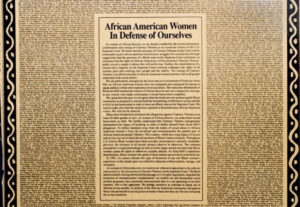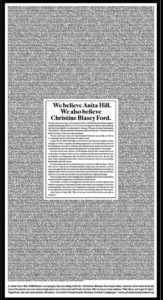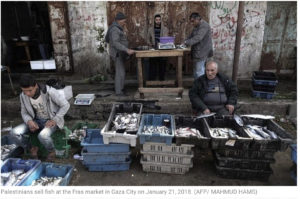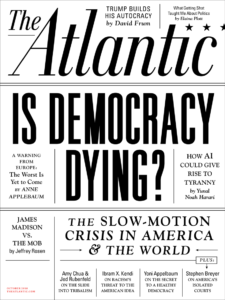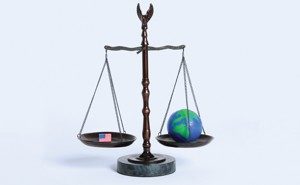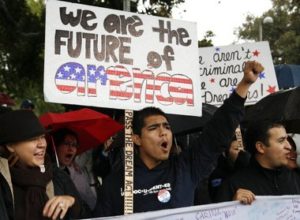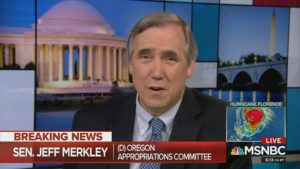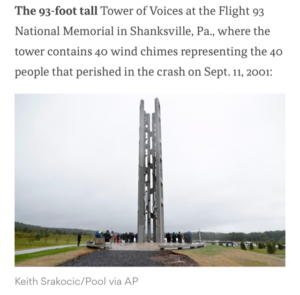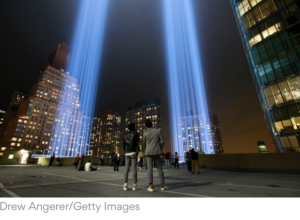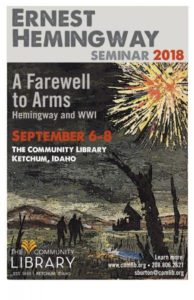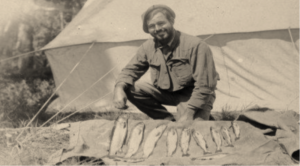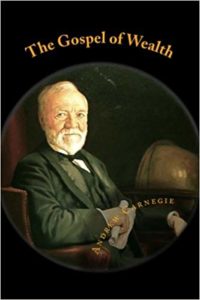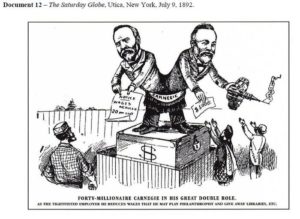Communal prayer.
September 30, 2018“Bless the leaders of the our land, that we may be a people at peace among ourselves and a blessing to other nations of the earth.
To all in administrative authority…Cabinet, Governors, Mayors (particularly, and currently, our Senators), grant wisdom and grace in the exercise of duties.
Give courage, wisdom, and foresight to provide for the needs of all our people, and to fulfill our obligations in the community of nations.
To the officers of our Courts give understanding and integrity, that human rights may be safeguarded and justice served.
-The Book of Common Prayer [2016], p. 733.
1991 & 2018
September 26, 2018In 1991 — 1,600 African-American women took out a full-page ad in the N.Y. Times to show support for Anita Hill.
And today, ‘Phenomenal Women Action Campaign’ places a crowdfunded full-page ad from 1,600 male allies in support of Anita Hill and Christine Blasey Ford.
[AXIOS]
PHENOMENAL WOMEN
”In the words of Anita Hill, “There is no way to redo 1991, but there are ways to do better.”
The tale of two cities.
The juxtaposition of these two stories most likely did not escape the editor.
https://www.aljazeera.com/topics/organisations/world-bank.html
9/11.
September 22, 2018I would see him walking. Or quietly sitting. Or writing. Always alone. He never asked me for money. I would see him resting in Forest Service Park, in the sun. I would smile. He would nod. He was calm, and gentle, never seeming to want, or need. When I encountered him one day at a local cafe, I bought him a cup of coffee. No chatting, really. Just a smile, and a nod.
I was waiting in Ketchum’s Limelight one late afternoon to catch a bus back to Hailey. It was cold so I was sitting by the fireplace. I looked up and saw him sitting across the street on a bench, in the sun. I thought, you know, the next time I see him I going to talk with him and ask him about his life…and life. I thought I would ask him if I could record his answers on my iPhone and share with the community. I had so many questions. I never saw him again.
He was found lying on the side of state Highway 75.
He died on September 11th.
I didn’t know his name.
Reporter Tony Evans wrote this for the Idaho Mountain Express.
Ketchum Resident John Pool Dies
As an Army sergeant, he earned two military medals
Ketchum resident John Denton Pool passed away on Sept. 11 of sepsis after being life-flighted to Twin Falls. He was 73.
Pool came to the valley in the mid-1980s and lived at times in garages and unused parts of buildings, or outside, friends said. Later on, he found housing. Since 2002, the Ketchum Korral and the Sun Valley Board of Realtors had been pitching in to cover his $400 rent at the Ketchum Korral cabins, after Pool’s former place of shelter was demolished.
“We kind of adopted him into the place,” said Ketchum Korral General Manager Ryan Sullivan. “The Advocates have a place for women and children but the male population here doesn’t get the same amenities.”
Pool was a man of mystery to some, gathering mental notes on hundreds of slips of paper at cafés in Ketchum and wearing the same clothes year in and year out. Some acquaintances have said he lived with a mental illness. He sometimes worked tending gardens.
Pool was also honorably discharged from the Army in 1983 as a sergeant with a medal of commendation. He served in the 1st Battalion of the 34th Artillery detachment from 1982 to 1983.
Ketchum Police Chief David Kassner said Pool was found lying on the side of state Highway 75 in Ketchum recently by officers, where he would often be seen carrying a cardboard sign that read “Need Work.”
“He was a gentle soul,” Kassner said.
The Higher Ground nonprofit veterans program is networking to get Pool a military funeral.
“We know he served his country well and was recognized for his service on duty,” said Higher Ground Director of Operations Rich Cardillo.
https://www.mtexpress.com/obituaries/ketchum-resident-john-pool-dies/article_700cb6e2-bb8a-11e8-93bd-dba3a518a5c6.html
Essential reading.
September 21, 2018Cover to cover The Atlantic’s October issue is essential reading from some of the most varied minds in our country today. They were invited to explore the premise of democracy’s demise. Topics include autocracy, tribalism, James Madison’s ‘Madisonian mob factions’, tyranny, and America’s courts by writers Anne Applebaum, Supreme Court Justice Stephen Breyer, Jeff Rosen, David Frum, Amy Chua, and others. The links are pinned below.
A note from The Atlantic:
Though these ills can be seen most plainly in the style and behavior of a growing number of political leaders worldwide, their sources run deeper than that. The aim of this package is to diagnose their serenity and root causes.
Some of these causes are universal; some are unique to the United States. The essays are grouped to reflect this distinction, and then to consider solutions.
Sprinkled throughout are brief warnings about risks to democracy from The Atlantic’s archives–some prescient, some misplaced, and many all too relevant today.
These are some of the headlines, stories, and links.
Losing the Democratic Habit
Yoni Appelbaum
Americans once learned self-governance by practicing it constantly–in lodge halls, neighborhood associations, and labor unions. As participation in these institutions had dwindled, so had public faith in democracy. To restore it, we must return democratic practices to everyday life.
https://www.theatlantic.com/magazine/archive/2018/10/losing-the-democratic-habit/568336/
The Threat of Tribalism
Amy Chua & Red Rubenfeld
The constitution once united a diverse country under a banner of ideas. But partisanship has turned Americans against one another–and against the principles enshrined in our founding document.
https://www.theatlantic.com/magazine/archive/2018/10/losing-the-democratic-habit/568336/
Madison vs. The Mob
Jeffrey Rosen
The founders designed a government that would be insulted from the heat of popular sentiment, but they didn’t anticipate the unbridled passions of the digital age. Here’s how the constitutional order can survive.
https://www.theatlantic.com/magazine/archive/2018/10/james-madison-mob-rule/568351/
America’s Courts Can’t Ignore the World
Supreme Court Justice Stephen Breyer
The U.S. Constitution is an American document. And American law should look exclusively to American precedents. Right? Not so, a supreme Court Justice says. That approach sounds good in theory, but the laws of other countries have a bearing on our own–and the highest court in the land needs to take heed.
https://www.theatlantic.com/magazine/archive/2018/10/james-madison-mob-rule/568351/
Building an Autocracy
David Frum
Will American democracy survive DT? And will the midterms matter?
https://www.theatlantic.com/magazine/archive/2018/10/building-an-autocracy/568282/
—
Link to The Atlantic October issue:
https://www.theatlantic.com/magazine/toc/2018/10/
By what we embrace.
‘Let us be silent so we may hear the whisper of God.’ -Ralph Waldo Emerson
‘There is a voice that doesn’t use words, listen.’ -Rumi
‘God came to my house and asked for charity. And I fell to my knees and cried, ‘Beloved, what may I give?’ Just love, She said. Just love. -St, Francis of Assisi
“We must measure our goodness, not by what we don’t do, what we deny ourselves, what we resist, or whom we exclude. Instead, we should measure ourselves by what we embrace, what we create, and whom we include.’
Chocolat
2000
Come sail away.
September 19, 2018The winds of God’s grace are always blowing; it is for us to raise our sails.
-Ramakrishna
We must raise our sails to catch the winds of God’s grace.
-Rev. Katherine Saux
God is like a person who clears her throat while hiding and so gives herself away.
-Meister Eckhart
Our job is to find God by raising the sail.
-Rev. Katherine Saux
A gathering of angels appeared above my head
They sang to me this song of hope and this is what they said
They said come sail away.
-Dennis De Young
Explosions in Boston. More than a gas leak?
September 18, 2018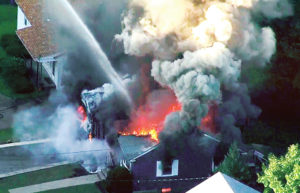
In this image take from video provided by WCVB in Boston, flames consume the roof of a home in Lawrence, Mass, a suburb of Boston, Thursday, Sept. 13, 2018. Emergency crews are responding to what they believe is a series of gas explosions that have damaged homes across three communities north of Boston. (WCVB via AP)
Sept. 18, 2018:
Pressure before Massachusetts gas explosions was 12 times higher than normal.
Democratic U.S. Sens. Elizabeth Warren and Edward Markey sent the letter Monday seeking answers about the explosions from the heads of Columbia Gas.
(The company that serves the communities of Lawrence, Andover and North Andover, and NiSource, the parent company of Columbia Gas.)
“The pressure spike registered in a Columbia Gas control room in Ohio, the senators said in the letter, which requests a reply by Wednesday.
“We write to request that you provide us with information in order to help the American people understand why this terrible disaster occurred, whether the company was sufficiently prepared to respond to an incident of this magnitude, and how we can prevent any similar tragedy in the future,” the senators wrote.
Dozens of explosions and fires last Thursday killed one person and injured more than two dozen others. About 8,600 customers were affected, and many had to evacuate their homes for days and may have to go without gas service for weeks.
Sophisticated computer programs are used to evaluate the delivery capacity of the network and to ensure that all customers receive adequate supplies of gas at or above the minimum pressure level required by their gas appliances.
Distribution mains are interconnected in multiple grid patterns with strategically located shut-off valves. These valves minimize the need for customer disruption to service during maintenance operations and emergencies.
https://www.aga.org/natural-gas/delivery/how-does-the-natural-gas-delivery-system-work-/
Richard Clark on Hacking
Former U.S. National Coordinator for Security, Infrastructure Protection, and Counterterrorism
Sept. 14th: “They’re in our power grid.”
[Begin at 1:45]
The current state of international cooperation on cyber threats, including opportunities and challenges for coordination between government and industry on cyber issues.
[Washington Post]
BOSTON
NiSource Inc. is one of the largest fully regulated utility companies in the United States, serving approximately 3.5 million natural gas customers and 500,000 electric customers across seven states through its local Columbia Gas and NIPSCO brands. The company, based in Merrillville, Indiana, United States, has more than 8,000 employees.
In December 2011, the non-partisan organization Public Campaign criticized NiSource for spending $1.83 million on lobbying and not paying any taxes during 2008-2010, instead getting $227 million in tax rebates, despite making a profit of $1.4 billion, and increasing executive pay by 33% to $11.2 million in 2010 for its top 5 executives.[3] One rule NiSource, among other companies, benefitted from was a bonus depreciation rule that lowered the federal tax expense. NiSource stated, “This law, enacted by Congress, encouraged companies like NiSource to accelerate capital investments to spur economic recovery by permitting portions of these investments to be deducted at an accelerated rate. Only the timing of the deductions was changed, and not the amount that could be deducted. This means our income tax expense will likely be higher in the future.
[From Wikipedia]
What is happening in Yemen?
UPDATE 9.23.18
If Hodeidah’s port is sealed off or put out of action, CARE’s Yemen Director Johan Mooij calculates that Yemen’s food supplies will last two to three months, taking into account the World Food Programme’s (WFP) stockpiles and estimated levels of commercial foods sourced from traders.
“Once the harbour is blocked we are talking about millions and millions of people who will not have food,” Mr Mooij told The Independent.
More than 8 million people are on the verge of famine in Yemen, in what the UN frequently describes as the world’s largest humanitarian crisis.
More than 8 million people are on the verge of famine in Yemen, in what the UN frequently describes as the world’s largest humanitarian crisis.
—
“As of March 26, 2018, at least 10,000 Yemenis had been killed by the fighting, with more than 40,000 casualties overall.
Getting accurate information on the death toll is difficult, but Save The Children estimated at least 50,000 children died in 2017, an average of 130 every day.
As reported by Al Jazeera, internally displaced Yemenis often must cope with a lack of food and inadequate shelter. Many Yemenis who have not fled are also suffering, especially those in need of healthcare.
In 2015, Saudi Arabia formed a coalition of Arab states to defeat the Houthis in Yemen. The coalition includes Kuwait, the United Arab Emirates, Bahrain, Egypt, Morocco, Jordan, Sudan and Senegal. Several of these countries have sent troops to fight on the ground in Yemen, while others have only carried out air attacks.
The US government regularly launches air attacks on al-Qaeda and Islamic State of Iraq and the Levant (ISIL, also known as ISIS) targets in Yemen, and recently admitted to having deployed a small number of troops on the ground. The US, along with other western powers such as the UK and France, has also supplied the Saudi-led coalition with weapons and intelligence.”
https://www.aljazeera.com/news/2016/06/key-facts-war-yemen-160607112342462.html
Arms deal
May 2017
“On Saturday, Trump is expected to announce an arms deal with Saudi Arabia worth more than $100bn, in what could be the biggest such agreement in history.
|
|
“Speaking on condition of anonymity, US officials familiar with the package told the Associated Press news agency that the deal would include Abrams tanks, combat ships, missile defence systems, radar and communications and cybersecurity technology.
Much of the package builds on commitments made before DT took office, although some elements are new, including weapons designed to help Saudi Arabia in an air campaign it has led in war-torn Yemen, officials said.
The DT administration separately informed Congress on Friday that it will sell some $500m in precision-guided munitions to Saudi Arabia. These include laser-guided Paveway II bombs and JDAM kits for converting unguided bombs into “smart bombs”.”
https://www.aljazeera.com/news/2017/05/trump-arrives-saudi-arabia-foreign-trip-170520063253596.html
“DT with, left to right, the Egyptian president, Abdel Fatah al-Sisi, Saudi Arabia’s King Salman and Melania Trump during a visit to a new Global Center for Combating Extremist Ideology, in Riyadh Photograph: Uncredited/AP”
March 26, 2018
Haaretz
“DT listed the amounts of weapons the U.S. has sold to the Saudis, ‘$880 million … $645 million … $6 billion … that’s for frigates’
DT gave a warm welcome to Saudi Arabia‘s powerful Crown Prince Mohammed bin Salman, known as MBS, on Tuesday and credited U.S. defense sales to the Saudis with boosting American jobs, even as Riyadh’s involvement in Yemen’s civil war faced criticism.
In the Oval Office, DT and the crown prince praised the strength of U.S.-Saudi ties, which had grown strained under the Obama administration in part over differing views toward Riyadh’s regional rival, Iran.”
CNN Exclusive Report
By Nima Elbagir, Salma Abdelaziz, and Laura Smith-Spark, CNN
Made in America
Shrapnel found in Yemen ties US bombs to string of civilian deaths over course of bloody civil war
“The incidents give a snapshot of US involvement in Yemen’s conflict through its support for the Saudi-led coalition that is battling a Houthi-led rebel insurgency. The United States says it does not make targeting decisions for the coalition. But it does support its operations through billions of dollars in arms sales, the refueling of Saudi combat aircraft and some sharing of intelligence.”
[…]
“Yemeni civilians are dying every day because of this war and you (America) are fueling this war, so stop fueling this war. It is a shame that financial interests are worth more than the blood of innocent people.”
https://www.cnn.com/interactive/2018/09/world/yemen-airstrikes-intl/
Gita.
September 14, 2018“He who hath found the Peace Within, and who hath been so illumined that he findeth his joy and happiness within himself–and knoweth that within him is the Kingdom of Heaven–verily, he gainith the peace of the Real Self, because he hath blended himself with the Real Self. They, from whom the illusion of duality and separation hath been removed, see all Life as One, and emanating from One. The welfare of the All becomes the welfare of the One to them; and to such cometh the Peace of the One. This Peace which passeth all Understanding, cometh to those who know themselves for what they are, rather than for what they seem to the smoke-bonded eyes of the world. Being freed from the bondage of desire and sense-passion they master their thoughts by their Wisdom–and their senses by their thoughts.”
Bhagavad Gita
Divided we fall.
“It’s often he small acts of ordinary people that
define the American identity.”
Dear Friends,
We are excited to announce that the United Shades of America episode we worked on with W. Kamau Bell just won an Emmy! It is the first cable episode on Sikhs in America — the first time the nation has seen Sikhs tell our own stories, in our own voices, for an hour on television. And now it has received the highest honor in the industry!
Let this win be a little beacon of light.
Today, as we mark seventeen years since 9/11, we believe that the best way to honor the thousands who died on this day and in its aftermath is to hear the STORIES that help us reckon with the past. The most brutal policies and rhetoric that drive hate in America today were first forged in the wake of 9/11. Our stories help us understand how to stand in solidarity with Muslims, Sikhs, and immigrants — and how to birth a new future.
So on this anniversary, we invite you to hear a story you have never heard before.
Watch the Emmy-award winning “Sikhs in America” on DIRECTV here. Then scroll down for a list of films, books, and toolkits that help us understand 9/11 and hate in America today. Some we produced, others we curated, all center Sikh American stories the nation needs to hear. Starting with this episode of United Shades:
Our award-winning film Divided We Fall explores hate, bigotry, and belonging in America in the aftermath of 9/11. For the last decade, the film has been used on 300+ campuses to spark dialogue and reflection. It is now available online for free and comes with up-to-date teacher´s guides and dialogues questions to use in your classroom, house of worship, or even your living room.
6 words at a time.
If you were asked to sum up your thoughts about race in six words, could you do it?
Eight years ago, Michele Norris, former host of NPR’s All Things Considered, asked people attending the book tour for her 2010 memoir, The Grace of Silence, to do just that.
The exercise was meant as a conversation starter, a way to engage people on the uncomfortable subject by having them write their thoughts on postcards and then share them with others—directly and online. But Norris’ Race Card Project has become much more.
Businesses, churches, and other institutions have used it to facilitate uneasy discussions around race.
The idea is even more relevant today. Nearly two-thirds of Americans say racism remains a problem in the United States, according to a recent NBC poll. In fact, almost half of those polled say they believe race relations are getting worse.
In addition to helping start difficult conversations, the postcards and their backstories also serve as a sort of time capsule, marking specific events: The first Black president, Black Lives Matter, the Muslim ban, understanding of White fragility, and the most openly racist president in recent history.
“I think it has great value over time,” said Norris, who now heads up a program called The Bridge at Aspen Institute, which focuses on race, identity, and inclusion. “I’ve done a lot of high-order research. What I would give to have an archive like this to better understand the lived experience of race and identity from the 1930s, or 1940s, 1960s, or even the 1970s, which wasn’t that long ago.”
“And this project, this crazy project that started on the third floor of my house, I think will provide a unique window for people who are trying to understand the moment that we’re living in right now,” she says.
Full piece:
Little things do matter.
Sarah Lazarovic
“I sign petitions. I refuse plastic bags. I try to eat mostly vegetables. I turn off the light when I leave a room. I am one of those people whom other people roll their eyes at. So I was delighted when fun illustrator Sarah Lazarovic suggested a regular YES! feature called Small Works, which would prove—charts! science!—that our little individual actions really do help create big changes.
P.S. We want to know what your small actions are! Sarah will select a few to illustrate and show you how important your small works are.”
No human is illegal.
September 12, 2018I recently met a professor who left a predominantly white college to teach undocumented youth in Souther California. When I asked him how it was going, he said, “Best move I ever made. My previous students felt entitled and demanded to be entertained. My undocumented students are hungry to learn, hard working, and courageous enough to keep moving beyond their comfier zones.”
America will be renewed by people with those qualities. And if we who have privilege and power will welcome them, collaborate with them, and help remove the obstacles in their way, the years ahed will be full of promise for all of us.
-Parker Palmer, On the Brink of Everything
CNSNews.com
Susan Jones/Sept. 12, 2018
On Sept. 7, the Immigration and Customs Enforcement agency (ICE) issued a proposed regulation that would make it easier for the government to detain adults along with their children — but even that family unity plan is controversial.
Sen. Jeff Merkley (D-Ore.) on Tuesday night accused the Trump administration of intending to “establish internment camps to lock up children behind barbed wire.”
“So we’re going from the horrendous policy of ripping children out of their parents’ arms, and of course we’re still trying to reunify all those families — to a new strategy of building internment camps that would be funded through…I.C.E.”
Merkley told MSNBC’s Rachel Maddow he has obtained a document showing that the Department of Homeland Security is taking $10 million out of the FEMA (Federal Emergency Management Agency) budget and is transferring that $10 million to ICE to support detention centers where children could stay with their parents or legal guardians.
Until recently, the Trump administration was essentially arresting the adults, then putting their children in custody of centers run by the Health and Human Services Department.
Merkley and Maddow noted that the $10 million cut out of FEMA’s budget happened at the start of hurricane season, and now, with all eyes on the approaching Hurricane Florence, they criticized the transfer:
“So $10 million comes out of FEMA when we’re facing a hurricane season, knowing what happened last year,” Merkley said. “And then look what we’ve had since, a hurricane just barely missed Hawaii; a tropical storm that almost became a hurricane hit Mississippi; and now we have this hurricane Florence bearing down on the Carolinas.”
Merkley said he finds it “extraordinary” that the Trump administration would take money from FEMA’s response and recovery budget to build what he calls “family internment camps.”
“And we haven’t done anything like that since World War II,” Merkley said. “It absolutely comes from a dark and evil place in the heart of this administration. They’re going from one strategy of inflicting trauma on children to a new strategy that they’re trying to implement to inflict trauma on children, all to send, as Jeff sessions says, a message of deterrence to discourage people who are fleeing persecution from ever considering arriving on the shores of the United States of America.”
(Merkley said much the same thing on CNN Wednesday morning.)
~
“We have been taught that in the annihilation of a mail, the ancient virtue of the family is destroyed. And in the destruction of the virtue and traditions of a people, vice and impiety overwhelm the whole race.”
Bhagavad Gita
Wisdom beyond the reach of humans.
“I grew up on the outskirts of coal country, where mining is more than a job–it also brings a sense of self to those who work the mines. Coal has fallen out of favor in search of cleaner-energy–the job losses are as violent an extraction as the mining process itself.
But there is so much to e learned from this past of the united States in terms of identify and place. As a person plagued by placelessness, I am encouraged to constitute who I am based on where I am.
True miners seek wisdom buried somewhere deep beyond the reach of humans. We are reminded that there is wisdom to be found in the lands that have been politically and socially rejected. The people I know–the oneself the mountains and mines–are people who know and work the land, who seek to understand its ways and wisdom.”
-Scott Gunn, Forward Day By Day
Deep-Fake Video. It’s real.
September 11, 2018
|
| https://ethicaljournalismnetwork.org/fake-news-more-dangerous |
|
Finally, in publicizing the dangers, media need to avoid a tone of hopelessness — “Soon we may never know what is real and what isn’t.” Quality media outlets need to emphasize how carefully they vet video. They should make sure their ethics codes and verification procedures adequately address the dangers. Otherwise, audiences will doubt any video — including legitimate and important footage that media outlets gather in their own breaking-news coverage and investigative work
17 years ago today.
‘Only wisdom confounds Satan and all his wickedness. Pure holy simplicity confounds all the wisdom of this world and the wisdom of the flesh.
-St. Francis, Salutation of the Virtues
Prayer: The wisdom that comes from above is first of all pure, then peaceable, gentle, and considerate, full of mercy and good fruits, without any trace of partiality or hypocrisy.
[photo: 9/11 memorial in NYC captured from above]
9.11
3,000 died that day, and many more since the terrorists struck, the first responders and those who stayed for weeks and months trying to repair the city.
The Guardian
September 11: nearly 10,000 people affected by ‘cesspool of cancer’
By Erin Durkin in New York
“Tens of thousands of people who lived or worked in the neighborhood at the time found themselves breathing in air thick with toxic fumes and particles from the pulverized, burning skyscrapers. Many have since become sick, many have died and new cases are still occurring all the time that are linked back to the poisons that were in the air around the wreckage.”
https://www.theguardian.com/us-news/2018/sep/10/911-attack-ground-zero-manhattan-cancer
“Yes, it still hurts, and we still mourn. Our beliefs do not change the fact that we suffer from the experiences of our human existence. We should mourn our dead and feel horror at violence. We should seek justice, commemorate the bravery of first responders and honor the sacrifices of the many people who pulled together in countless small ways to comfort and support each other.
As metaphysicians, however, we do not stop there. We set our eyes and hearts to looking beyond what happened to what can come from it. For there is always something good that can be belated, whether or not we can see it in the moment. There is always love, showing up in ways big and small. We saw it for days, weeks and months after 9/11. Surely, we can keep that movement going even after 17 years. As for me, I intend to feel the pain, honor the courage, seek the path to forgiveness the best I can and always, always return to love.”
Affirmation: I remember those who died, those who save others and those who were so misguided on this day 17 years ago. I hold them all in my heart and remember that I am one with them all in the One.
-Rev. Katherine Saux, Science of Mind
11.6.18
To young people:
“You need to vote, because our democracy depends on it.”
-President Barack Obama
The Broken Places
September 10, 2018The Hemingway Seminar concluded on Saturday, Sept. 8th, at the Community Library in Ketchum, with a focus on Hemingway’s third book, A Farewell to Arms. At the ending presentation, University of Maryland english professor David Wyatt discussed the various 47 endings Hemingway considered, including an ending Hemingway’s friend, F. Scott Fitzgerald, pleaded with him to use.
If people bring so much courage to this world the world has to kill them to break them, so of course it kills them. The world breaks everyone and afterward many are strong at the broken places. But those that will not break it kills. It kills the very good and the very gentle and the very brave impartially. If you are none of these you can be sure it will kill you too but there will be no special hurry.
Hemingway would ultimately choose a different ending, and include 68 more pages after this one, which is found on page 216 in A Farewell to Arms, The Hemingway Library Edition, Includes the Author’s 1948 Introduction, Early Drafts, and All of the Alternative Endings (2012).
The Hemingway Society
The Bi-Annual conference moves to Wyoming in 2020 after Paris in 2018.
“We will begin in Sheridan, Wyoming, where A Farewell to Arms was finished and end in Cooke City, MT, from where final drafts of Death in the Afternoon and To Have and Have Not were mailed, with stops at the Little Bighorn Battlefield, Yellowstone National Park and Hemingway pertinent towns – Cody, WY and Red Lodge, Montana. The Hemingway Society invites you to join us in 2020 to celebrate the 80th anniversary of For Whom the Bell Tolls, experience some of the America’s most pristine wilderness, and explore the final frontier of Hemingway scholarship.”
The gospel of giving.
Exploiting tax codes in the name of philanthropy.
“For every foundation that existed in 1930, there are now five hundred.”
Just Giving: Why Philanthropy is Failing Democracy and How It can Do Better,
Rob Reich, Stanford political science professor
David Callahan:
“It’s not just that the megaphones operated by 5019c0(3) groups and financed by a sliver of rich donors have gotten louder and louder, making it harder for ordinary citizens to be heard. These citizens are helping foot the bill.
When it comes to who gets heard in the public square ordinary citizens can’t begin to compete with an activist donor classes. How many very rich people need to care intensely about a cause to finance megaphones that drown out the voices of everyone else? Not many.”
Gospels of Giving For the New Gilded Age/Are today’s donor classes solving problems, or creating new ones?
By, Elizabeth Kolbert
https://www.newyorker.com/magazine/2018/08/27/gospels-of-giving-for-the-new-gilded-age
Kolbert:
The idea that both liberals and conservatives are exploiting the tax code is small consolation.
In the spring of 1889, Andrew Carnegie published an essay on money. If possession confers knowledge, then there was no greater expert on the subject: Carnegie was possibly the richest American who ever lived.
The “Gospel” opened with a discussion of inequity. This was the Gilded Age, and, even as most Americans were struggling to get by, the one-per-centers were putting up “cottages” in Newport. The disparity was, in Carnegie’s view, unavoidable. It was the price of progress, and progress, ultimately, benefitted everyone.
“The Gospel of Wealth” has been called the “ur-text of modern philanthropy.” It advocated a new kind of giving, a form of charity that wasn’t charity but something more pragmatic and, at the same time, more ambitious—a giving aimed, in Carnegie’s words, at improving “the general condition of the people.” Acting on his own advice, Carnegie went on to endow Carnegie Hall, the Carnegie Foundation, the Carnegie Endowment for International Peace, the Carnegie Institute of Technology (now part of Carnegie Mellon University), and more than twenty-five hundred local libraries. His contemporaries financed the Rockefeller Foundation, the Russell Sage Foundation, the Field Museum, and the University of Chicago.
The “Gospel” also prompted the ur-critiques of philanthropy. In 1890, the Reverend Hugh Price Hughes, a Methodist minister, wrote that, while he was sure Carnegie was “a most estimable and generous man,” his “Gospel” represented a “social monstrosity” and a “grave political peril.” William Jewett Tucker, a professor of religion who would later become the president of Dartmouth, was no less horrified. What the “Gospel” advocated, Tucker wrote, was “a vast system of patronage,” and nothing could “in the final issue create a more hopeless social condition.” To assume that “wealth is the inevitable possession of the few” was to evade the essential issue: “The ethical question of today centres, I am sure, in the distribution rather than in the redistribution of wealth.”
To critics, the Homestead strike made explicit the inconsistency of Carnegie’s position. How could a person ruthlessly exploit his employees and, at the same time, claim to be a benefactor of the toiling masses? The Saturday Globe, a Utica-based weekly, published a cartoon showing two Carnegies, conjoined at the hip. One, smiling, handed out a library and a check; the other held out a notice telling workers that their pay had been slashed. “As the tight-fisted employer he reduces wages that he may play philanthropist,” the caption read.
It is difficult to say what fraction of philanthropic giving goes toward shaping public policy. Callahan estimates that the figure is somewhere around ten billion dollars a year. Such an amount, he says, might not sound huge, but it’s more than the annual contributions made to candidates, parties, and super-pacs combined. The result is doubly undemocratic. For every billion dollars spent on advocacy tricked out as philanthropy, several hundred million dollars in uncaptured taxes are lost to the federal treasury.
Instead of promoting equality, Reich worries, tax subsidies for philanthropy may actually be doing the reverse. He cites, in particular, local-education foundations, or lefs. These are, essentially, souped-up PTAs, formed to supplement public-school budgets, and they’ve grown dramatically in recent years. Some lefs raise only enough money to buy paint sets or musical instruments, but some, in more affluent districts, raise thousands of dollars a pupil. In the town of Hillsborough, California, just north of Stanford, Reich reports, parents of public-school students get a letter at the start of the year asking for a contribution of twenty-three hundred dollars for each child enrolled. While the contributing parents can’t dictate exactly how the money will be spent, Reich writes, it’s easy to imagine groups of parents pressing the district to hire specialized teachers or to purchase sophisticated equipment that “can be targeted to benefit their own children.” This arrangement, in his view, exacerbates existing inequities in school funding, and, since contributions to lefs are tax deductible, rich districts are, in effect, receiving a subsidy from other taxpayers.
The New Yorker/The Mail
Sept. 10, 2018:
As someone who is working to elect a Democrat in a Republican-held congressional district, I asked myself why none of the philanthropists mentioned in Kolbert’s article are working to protect the most basic mechanism of democracy: the right to vote. According to the Brennan Center for Justice, forty-one states have outdated voting machines that are vulnerable to hacking and breakdowns. Officials in thirty-three states told researchers that they didn’t have enough funds to upgrade their systems before 2020. If Silicon Valley is happy to sell voting systems to the government, shouldn’t tech billionaires feel some responsibility for safeguarding them and fixing them, since hacking threatens the liberal, free-market democracy that enabled their companies to succeed in the first place? My first thought upon finishing Kolbert’s article was: Will anyone rescue our democracy with a funds-for-secure-elections drive? Because the federal government hasn’t done so, and apparently won’t.
Sharona Muir
Perrysburg, Ohio

